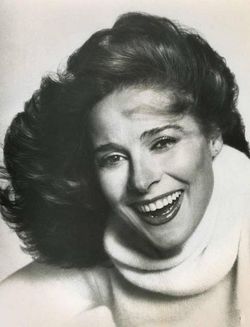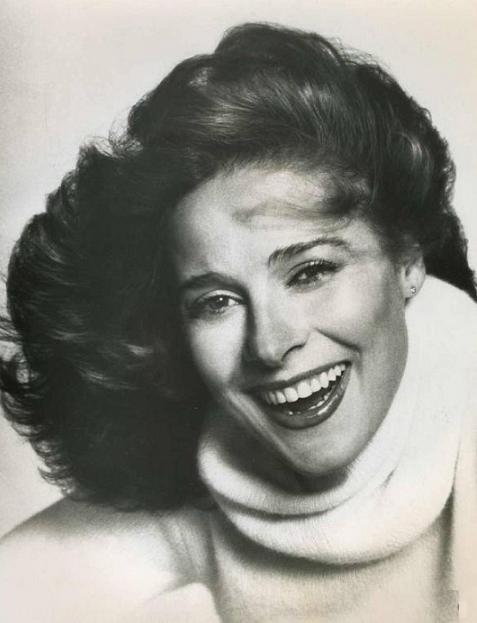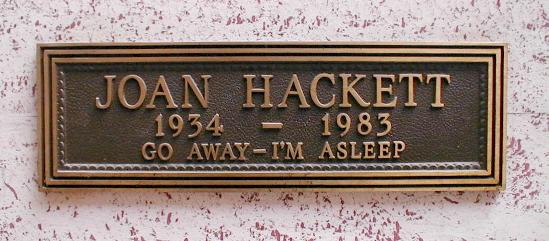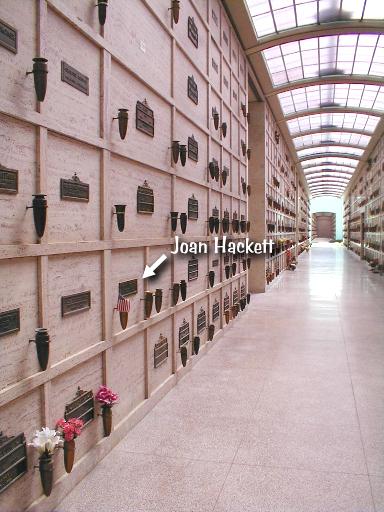She will be remembered for her many award-winning performances as an actress of stage and television. In 1966, she was nominated for the BAFTA Award for Best Foreign Actress in the film "The Group," which also starred Richard Mulligan. With Charlton Heston, she starred in the 1967 western "Will Penny." She went on to be nominated for the Academy Award for Best Supporting Actress and win the "Golden Globe Award for Best Supporting Actress" for the 1981 film "Only When I Laugh." She also starred as Christine Mannon in the 1978 PBS miniseries version of "Mourning Becomes Electra," which some critics proclaimed was her best performance. In 1959, she debuted in the television series, "Young Doctor Malone" with the role of Gail Prentiss. The same year, she had her Broadway debut in the John Gielgud production of "Much Ado about Nothing." In 1961, she won a Theatre World Award, an Obie Award for Best Actress and a Drama Desk Award for her Off-Broadway portrayal of Chris in Michael Shurtleff's play "Call Me by My Rightful Name." In television performances, she appeared in "Bonanza" in 1959 and in the 1961 medical series "Ben Casey," which credited her with an Emmy-nominated performance. She had a recurring role from 1961 to 1965 in the CBS legal drama "The Defenders" performing opposite actors Robert Reed and E.G. Marshall; a role in "A Piano in the House," an episode the 1962 CBS Syfy series "Twilight Zone"; and a guest role in the ABC series of "Channing" In the 1962 TV version of "Rebecca," she played the role of the second Mrs. de Winter. In 1978, she was a regular in the cast of the short-lived CBS situation comedy "Another Day," and in the September 22, 1979 episode, "Grass is Always Greener" of ABC series of "The Love Boat." More film roles included the 1968 Western comedy "Support Your Local Sheriff!" with James Garner, "Assignment to Kill" in 1968; and with Anthony Perkins in "How Awful about Allan" in 1970 and again a murder mystery, "The Last of Sheila," in 1973. She had a small part in the film 1980 feature film "One-Trick Pony" written by and starring Paul Simon. She returned to the stage in 1972 for a part in "Night Watch." In 1980, she had the lead role in "Harnessing the Sun," a film dear to her heart as it was about Solar Energy to benefit mankind and the planet Earth. Her last film to be released before her death was Neil Simon's film "Only When I Laugh." Besides Hackett's nomination for Best Supporting Actress, the film was nominated for Academy Awards for Best Actress in a Leading Role to Marsha Mason and Best Actor in a Supporting Role to James Coco. At the award ceremony, she was so debilitated from her battle with ovarian cancer that she was in a wheelchair. From 1966 to 1973, she was married to actor Richard Mulligan, who also appeared in "The Group." A strong-minded perfectionist, the beautiful brunette had an independent spirit; she turned down a contract with 20th Century-Fox and opted instead for acting classes at Lee Strasberg's Actor's Studio, which led to her ability to become an award-winning actress.
She will be remembered for her many award-winning performances as an actress of stage and television. In 1966, she was nominated for the BAFTA Award for Best Foreign Actress in the film "The Group," which also starred Richard Mulligan. With Charlton Heston, she starred in the 1967 western "Will Penny." She went on to be nominated for the Academy Award for Best Supporting Actress and win the "Golden Globe Award for Best Supporting Actress" for the 1981 film "Only When I Laugh." She also starred as Christine Mannon in the 1978 PBS miniseries version of "Mourning Becomes Electra," which some critics proclaimed was her best performance. In 1959, she debuted in the television series, "Young Doctor Malone" with the role of Gail Prentiss. The same year, she had her Broadway debut in the John Gielgud production of "Much Ado about Nothing." In 1961, she won a Theatre World Award, an Obie Award for Best Actress and a Drama Desk Award for her Off-Broadway portrayal of Chris in Michael Shurtleff's play "Call Me by My Rightful Name." In television performances, she appeared in "Bonanza" in 1959 and in the 1961 medical series "Ben Casey," which credited her with an Emmy-nominated performance. She had a recurring role from 1961 to 1965 in the CBS legal drama "The Defenders" performing opposite actors Robert Reed and E.G. Marshall; a role in "A Piano in the House," an episode the 1962 CBS Syfy series "Twilight Zone"; and a guest role in the ABC series of "Channing" In the 1962 TV version of "Rebecca," she played the role of the second Mrs. de Winter. In 1978, she was a regular in the cast of the short-lived CBS situation comedy "Another Day," and in the September 22, 1979 episode, "Grass is Always Greener" of ABC series of "The Love Boat." More film roles included the 1968 Western comedy "Support Your Local Sheriff!" with James Garner, "Assignment to Kill" in 1968; and with Anthony Perkins in "How Awful about Allan" in 1970 and again a murder mystery, "The Last of Sheila," in 1973. She had a small part in the film 1980 feature film "One-Trick Pony" written by and starring Paul Simon. She returned to the stage in 1972 for a part in "Night Watch." In 1980, she had the lead role in "Harnessing the Sun," a film dear to her heart as it was about Solar Energy to benefit mankind and the planet Earth. Her last film to be released before her death was Neil Simon's film "Only When I Laugh." Besides Hackett's nomination for Best Supporting Actress, the film was nominated for Academy Awards for Best Actress in a Leading Role to Marsha Mason and Best Actor in a Supporting Role to James Coco. At the award ceremony, she was so debilitated from her battle with ovarian cancer that she was in a wheelchair. From 1966 to 1973, she was married to actor Richard Mulligan, who also appeared in "The Group." A strong-minded perfectionist, the beautiful brunette had an independent spirit; she turned down a contract with 20th Century-Fox and opted instead for acting classes at Lee Strasberg's Actor's Studio, which led to her ability to become an award-winning actress.
Bio by: Linda Davis
Inscription
Joan Hackett
1934 – 1983
Go Away–I'm Asleep
Family Members
Advertisement






